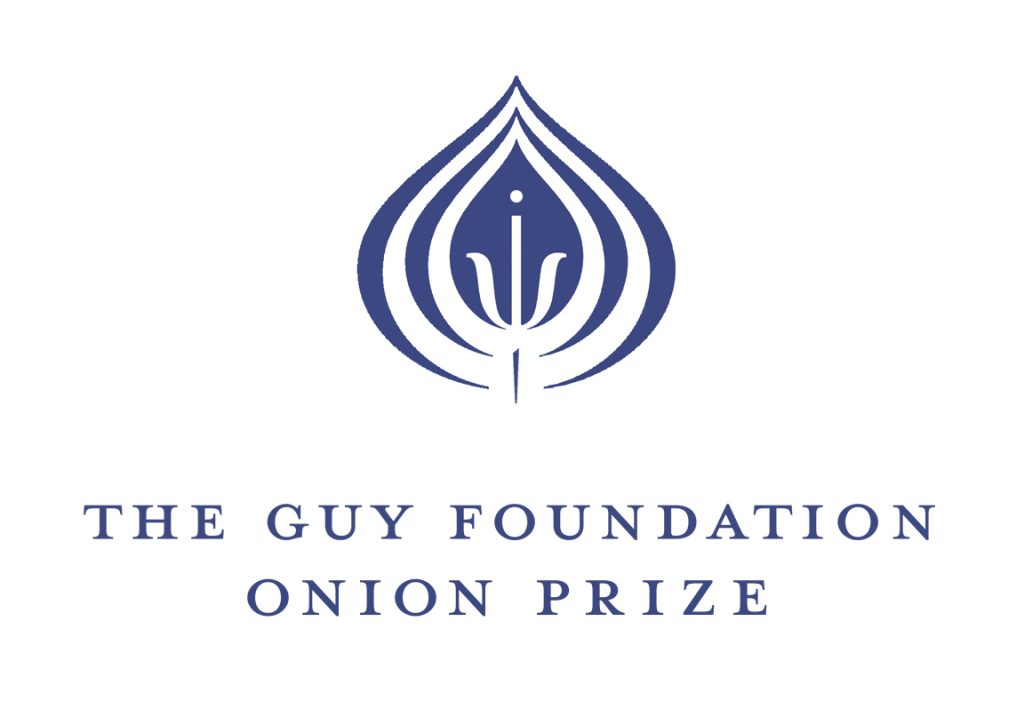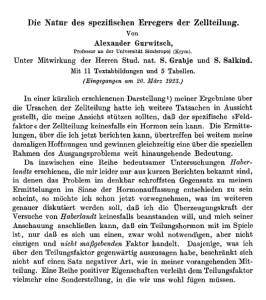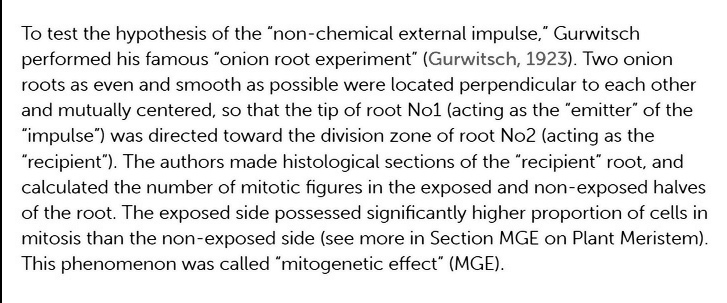
To mark the centenary of Gurwitsch’s first observation of non-chemical communication, we are pleased to announce that The Guy Foundation is sponsoring a competition to reward the best, or most novel, replication or reinterpretation of Gurwitsch’s original experiment. The competition is open to researchers around the world, at any career stage. The winner will be awarded The Guy Foundation Onion Prize, which includes the opportunity to present their work at a Guy Foundation meeting, an article in The Guy Foundation Newsletter and a cash prize of US$5,000. Closing date for entries will be Gurwitsch’s birthday, 26th September 2023.

In 1923, Alexander Gurwitsch hypothesised that biological systems might communicate through the use of electromagnetic radiation. As proof of this he performed an experiment to investigate how mitotic processes in the roots of one onion might stimulate mitosis in an adjacent onion root. The results of this famous experiment suggested that some form of non-chemical communication was taking place between the adjacent roots, the emission of which was subsequently called biophotonic radiation. However, due to the ultraweak nature of the radiation, this ‘mitogenetic effect’ was difficult to confirm. Almost a century later, the role of biophotons in biological systems remains an underdeveloped field of research, falling behind the advances made in understanding how genes influence and control biological organisms. Advances in photonic detection technologies and the developing field of quantum biology, however, have made new inroads in contributing to research on ultraweak emissions from biological tissue.
The Guy Foundation is committed to supporting the advancement of quantum biology, with a view to the development of new therapeutics. Quantum physics was developed as a response to new observations with respect to light-matter interactions. Quantum biology is also preoccupied with light and the manner in which it interacts with living matter. In addition to fostering new ideas, The Guy Foundation also recognises the importance of rigorous experimental verification of these ideas.
Professor Geoffrey Guy, The Guy Foundation Founder and Chairman, commented: “One of the primary purposes of The Guy Foundation is the advancement of new ideas towards the development of new therapeutics. At the same time, we recognise the importance of testing and confirming these new ideas with reliable, replicable experimental results. Our sponsorship of The Guy Foundation Onion Prize will hopefully foster both innovation and experimental expertise, while celebrating the creativity of excellent scientific endeavour.”
Competition details
- The competition is open to any researcher worldwide at any career stage.
- Entries should comprise a written write-up of a replication or reinterpretation of Gurwitsch’s original experiment. The experiment is described in this review: Frontiers | Revisiting the mitogenetic effect of ultra-weak photon emission (frontiersin.org)

- Competition entries should be submitted to the Programme Director by email n.copping@theguyfoundation.org together with your name, role title, affiliation, postal address, email address and telephone number.
- The deadline for entries is 12noon BST on Tuesday 26 September 2023. Late entries will not be considered.
- Entries will be judged according to whether they are the best, or most novel or imaginative, replication / reinterpretation of Gurwitsch’s original experiment. Aspects such as the quality of the research method, quality of the presentation of the results, and creativity/originality in approach will be considered. Negative results would be of interest as well as positive results. The write-up should be of publication quality.
- The Guy Foundation Board of Trustees will decide on the winner. Their decision will be final. If entries were deemed to be of insufficient quality the prize the Trustees would be under no obligation to award the prize.
- Certain qualifying criteria need to be met for eligibility for the cash prize. For example, any person closely affiliated with The Guy Foundation (ie has a role with, or receives research funding, from the Foundation) is eligible to enter the competition, however if they won they would not receive the cash element of the prize.

